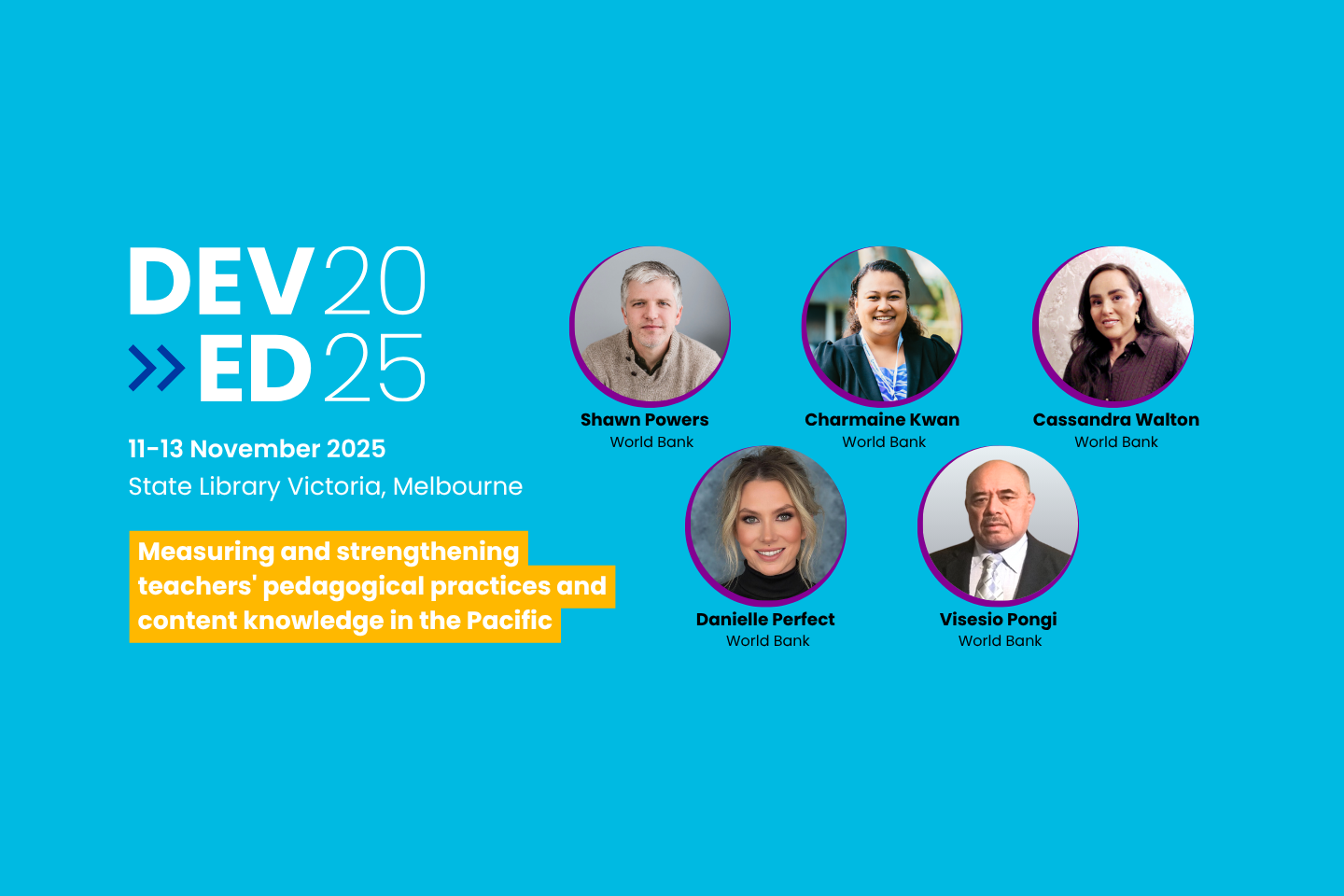
World Bank to host teaching quality symposium at DevEd 2025
Research 6 Oct 2025 5 minute readThe World Bank will spotlight how data-driven tools are improving teaching across the Pacific at DevEd 2025 in Melbourne.
Educators, researchers, and policymakers from across the Asia-Pacific will gather at the DevEd 2025 conference in Melbourne this November for a symposium that promises to reshape how teaching quality is measured and strengthened across the Pacific.
Led by the World Bank under the Advisory Support for the Pacific Island Region in Education (ASPIRE) program, the ‘Measuring and Strengthening Teachers' Pedagogical Practices and Content Knowledge in the Pacific,’ symposium will spotlight groundbreaking research and practical strategies for system-level change.
Chaired by Shawn Powers, a senior education specialist with the World Bank, the symposium is a call to action for anyone committed to improving learning outcomes in the Pacific region.
‘We’re thrilled to bring this important dialogue to DevEd 2025,’ said Powers. ‘This isn’t just about collecting data – it’s about transforming classrooms, empowering teachers and creating lasting impact. If you care about meaningful education reform, this is a session you won’t want to miss.’
The session draws on 3 years of research (2022–2025) through the ASPIRE program, a World Bank-managed initiative supported by partners, including the Australian Government. The symposium aims to foster a collaborative dialogue on using measurement to enhance teaching practices and content knowledge in the Pacific, combining experiential learning, research results, and a case study of application. It seeks to raise awareness of the importance of measurement in driving system change and promote collaboration among educators, researchers, and policymakers.
Here is what conference participants can expect:
Measuring teaching practices using the Teach tool – interactive session
Participants will engage with the Teach tool, a free classroom observation instrument tailored for early childhood, primary and secondary classrooms. Adapted specifically for Pacific Island contexts, this hands-on session led by Dr. Charmaine Kwan will include video demonstrations and interactive discussions. Participants will walk away with a clear understanding of how structured observation can be used to assess areas like classroom culture, guided learning, and social and emotional skills.
The state of teaching practices in the Pacific
This presentation from Danielle Perfect will dive into findings from 5 Pacific countries – Tonga, Kiribati, Fiji, Tuvalu and the Republic of the Marshall Islands – using data from the Teach tool between 2022 and 2024. The analysis reveals strong classroom cultures across the region, while also highlighting key areas for growth, especially in helping students develop social and emotional skills.
Content knowledge for teaching in Tonga and Kiribati – case study
Drawing from national assessments in English and Mathematics, this session will explore the current state of teachers’ content knowledge. While basic content knowledge is not a major concern, the studies reveal significant challenges in how teachers apply that knowledge in practice, particularly in explaining core concepts and addressing student misconceptions. The presentation by Dr. Visesio Pongi underscores the need for targeted professional development in both countries.
Using measurement to inform teacher professional development
Closing the session will be a compelling case study from Kiribati, showcasing how the Ministry of Education is using data to design and implement evidence-based professional development. The presentation from Cassandra Walton will share early insights from a new teacher professional development pilot for early childhood teachers, which launched in June 2025. It highlights how data-driven strategies can create ripple effects throughout national education systems.
With its unique blend of research, practical tools and regional insights, this World Bank symposium offers a rare opportunity to see how measurement can be used to evaluate and transform teaching and learning outcomes in some of the world’s most remote education systems.
View the DevEd program and register today to ensure you don’t miss this important symposium.